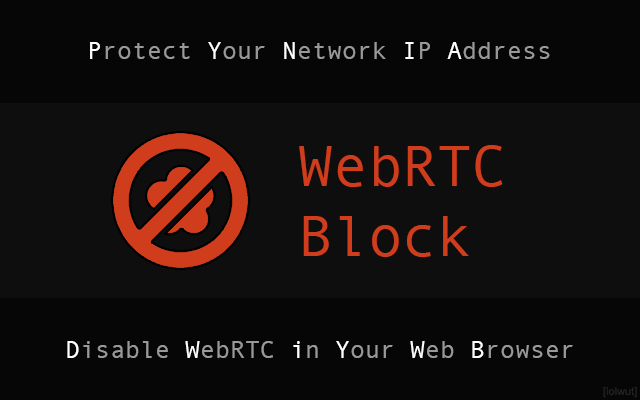Do you know that you have a digital ID, called IP address? Every single day, millions of people are connected to the web. Each of them accessing at least hundreds of million of pages on the web. All happen at the same time. If the internet was a man, nothing like this can happen. One system delivering at least billions of information to millions of people at the same time. If the internet was a human, it would be impossible. However, we’ve never heard about it. We’ve never heard how the internet fail us. This leads to one simple question. How can it be possible? How the web delivers the information exactly to the right person, without mistaking it?
IP Address, Your Online ID Card
The answer to that question lies on your device. Today, most devices can connect to the web. To help identifying these devices, they come with an online ID card. We call it IP address. Despite its name, IP address contains lots of personal information. An IP address can tell your location, your device type, its manufacturing data, who made it, LAN card details, and many more. With this detailed information, hacker can breach into your system using only your IP address.
VPN and your IP address
Protecting your IP address is important in cyber security. It’s like guarding the door into your device. The better you protect it, the safer you’ll be. For the exact same reason, people always seek for the best IP protection. And the winner is VPN. A VPN can mask your original IP address and hide them from any cyber threat. Unfortunately, not all VPN are secure. Unlike VPN.asia, some of them have security flaws. These flaws can reveal your original IP address. In other words, while you surfing the web with VPN, there might be a chance your IP address is not masked. Therefore, anyone can know and attack it. And, get ready for the worst. A cyber criminal can exploit this flaw. While you enjoy browsing the web, someone might be spying on you. Your information might have been lost.
The challenge here is, what can you do? Is there a way to stop it?
IP Address Leak
At VPN.asia, we believe there’s a solution for every challenge, including IP leak. But, before we get there, let’s learn more about it.
What is IP Leak?
Here’s a simple example of a VPN user experiencing IP leak.
Once you signed in, the VPN provider will offer you a list of its available servers. After you chose one of these servers, the VPN will start masking your IP. As the result, your original IP address will be hidden. The only one anyone and anything supposed to see is the VPN server IP address. This is how things supposed to work.
But….
Have you ever seen this message, even after connecting to the server?
“Sorry, this content isn’t available in your country,”
That means there’s something wrong with your VPN. It means your VPN is failing. The website still detects your original IP address. In other words, you’re suffering from IP leak.
Real-life cases of IP leak
Our first example happened last year. A serious security flaw was discovered back then. Any remote site can use this flaw to reveal anyone’s true IP address by using Web Real Time Communication or WebRTC. Up until today, WebRTC is still a built-in features in most browsers. Even if you use a VPN, it won’t help. Fortunately, today we can fix it with some browser extensions.
Our next example happened in the late 2015. Several VPN providers fall to Port Fails. This incident attacked providers with Port Forwarding feature. In this case, at least thousands were declared as victims.
Are you affected?
Don’t get over confident, until you got proofs. Many people believe in their VPN too much. Let me tell you something. Nothing’s good if it was too much. That includes VPN. Even if your VPN provider is the best provider you can get, you still need to check its performance. That’s why we, at VPN.asia, recommend you to checking our service. Are you affected by IP leak? Can you trust us to hide your IP address?
Let’s not waste the time. Here are some tips to check how good we serve you.
Note: please make sure you are not connected to any of our server.
- Check your real IP address at What’s My IP Address or IP 2 location. Write down the address. Close the tab.
- Now, login to your VPN.asia app. Connect to any server.
- Visit What’s My IP Address or IP 2 location again. Now, check your IP. If you got a different IP address, then our service is working great. However, if nothing changes, then you get an IP leak.
- To confirm, visit WebRTC test page. Take a look at the IP address shown on the page. Is it the same address you got on step 3? If yes, then there’s nothing to worry about.
Protect yourself
Luckily, you have VPN Asia. Our service is completely secure from IP leak and Port Fails. But, telling you this won’t do any good. So, here is one tip you can use to prove our service.
Disable WebRTC
If you’re using Safari and IE, you’re safe from this threat. Neither Safari nor IE uses WebRTC. However. if you use Edge, Firefox, Chrome, and Opera, you need to disable this extension.
For Chrome and Opera users
Grab and install ScriptSafe extention. Click here to get this extension for Chrome and here for Opera.
For Firefox users
Grab and install Disable WebRTC add-on. You can grab the extension here. You can also disable the WebRTC using “about:Config” in your address bar.
 English
English
 German
German Dutch
Dutch Thai
Thai Chinese
Chinese

